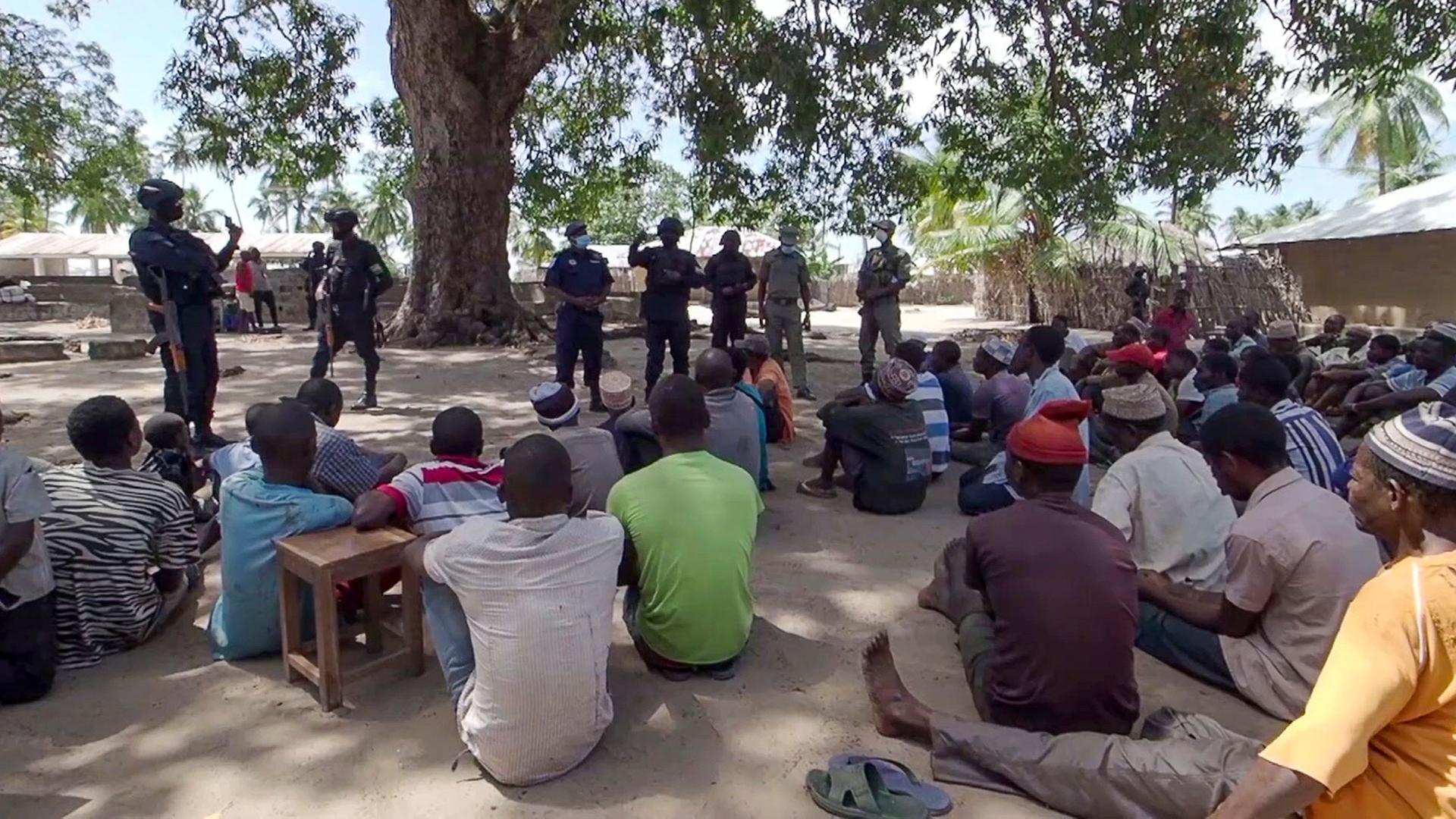After years of embarrassing defeats, Mozambique seems to be making headway against a yearslong insurgency in the northern province of Cabo Delgado.
On Aug. 8, Mozambican forces, assisted by recently deployed Rwandan soldiers, recaptured the port city of Mocímboa da Praia, a town captured by insurgents last year.
It marks a potential turning point for Mozambique, which has fought the insurgency largely in secrecy and denied the scope of the problem while resisting calls for international support.
Related: Hundreds remain missing after Cabo Delgado attack
“They have been reluctant to do so because a homegrown insurgency in the ruling party’s home province is deeply embarrassing and has huge political and symbolic reputational damage to it,” said Robert Besseling, CEO of Pangea-Risk.
But pressure on Mozambique increased after a deadly attack on the town of Palma, which killed dozens of people, including foreign nationals, back in March.
Since then, international support of Mozambican troops has increased through training from Portugal and the United States, and with boots on the ground from African partners.
On Aug. 9, the Southern African Development Community (SADC) launched a new peacekeeping mission called SANIM.
“[It’s] mandated to support the Republic of Mozambique to combat acts of terrorism and violent extremism by neutralizing threats and restoring security to create a stable environment,” said South African General Xolani Mankayi, head of SANIM, during the opening event.
The SADC mission will deploy nearly 1,500 African soldiers to Mozambique — joining 1,000 Rwandan troops who arrived in the country last month.
But questions still linger about the roots, makeup and ambitions of the militants they will be fighting in the province.
“There are some Mozambicans, Tanzanians, Somalians, DRC borns and other countries who lead this group,” Mozambican Gen. Christorao Artur Chume told reporters last week.
Related: ISIS-linked port seizure signals growing terrorism threat in Mozambique
Earlier this year, the US designated the militants as an ISIS affiliate, a link still disputed by some experts.
“[There is very] little evidence at the moment that there are strong ties in terms of ideology, leadership recruitment, funding supply between the disparate insurgency in northern Mozambique and different parts of Islamic State in Africa or beyond,” Besseling said.
Regardless, the well-armed insurgency has shown the capacity to wreak havoc in sophisticated attacks and instill fear among Mozambicans.
“They kill people, they destroy infrastructure. They don’t want people living in peace.”
“They kill people, they destroy infrastructure,” Chume said. “They don’t want people living in peace.”
In interviews with Rwandan media, displaced civilians in Cabo Delgado expressed happiness at the arrival of foreign troops and hope that they could soon return to their homes.
But Zenaida Machado, a senior researcher with Human Rights Watch, advised caution.
“What we would want the army to do at this stage is to make sure that the area is completely safe before they allow or encourage anyone to return home.”
“What we would want the army to do at this stage is to make sure that the area is completely safe before they allow or encourage anyone to return home,” she said.
As more troops arrive in the country, Machado called on Mozambique’s government to prioritize human rights, which means investigating alleged abuses by security forces against locals in recent years.
“They had relatives that were forcefully disappeared, arbitrarily arrested, or ill-treated or beaten by security forces, or summarily executed,” Machado said.
